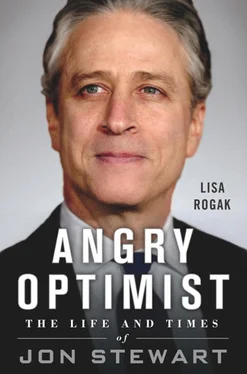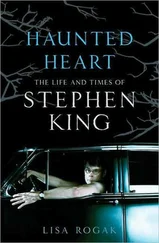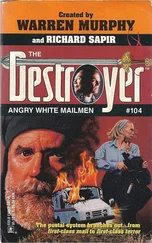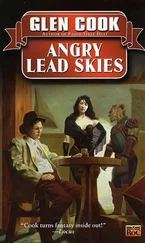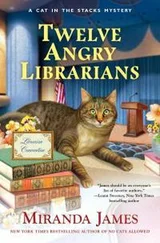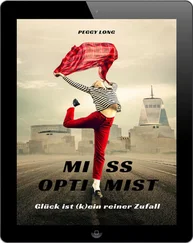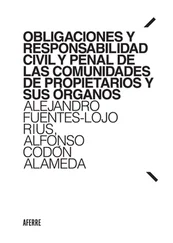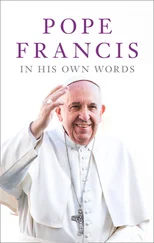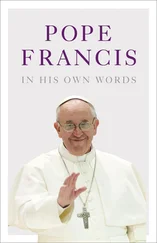Though Stewart scorned both parties in almost equal doses, he held special rancor for how the media reported the campaign and its aftermath, failing to hide his disgust. “This isn’t Olympics boxing, it’s a presidential race,” he said. “[The media] set up expectations in that first debate as, literally, if George Bush proved he could feed himself, that was presidential, and if Al Gore blinked, he had warmth. And that’s the way they judged the debate. They didn’t even deal with the fact that when an issue did come up, George Bush’s proposals were literally, ‘I think Americans are good. And should help themselves.’”
The uncertain outcome of the election fanned the flames of The Daily Show, attracting thousands of new viewers to the show since it could rightfully be argued that the hanging chads and circus-like atmosphere of conventional news reports helped not only to develop Stewart’s chops but also to build a loyal audience that would stick around long after the winning candidate had settled into the Oval Office.
“Everything [in the campaign] became so absurd that the absurd people became the actual pundits,” Smithberg said. “Jon Stewart is now a kind of recognized, viable pundit.”
“There was no better story for us than the 2000 election because it involved everyone, it was unprecedented, and no one died,” said Colbert. “The night that Gore conceded, we were finally able to use the material we were writing for thirty-two days. It was so much fun to release all that comedy that had built up for that time. I couldn’t imagine having more fun. We all felt that way.”
More important, the Show ’s coverage of the convention helped put both the show and Stewart on the map. “[I]n the year 2000 Jon Stewart officially became a public intellectual,” said Robert Thompson, director of the Bleier Center for Television and Popular Culture at Syracuse University.
“We’ve always wanted to be less dependent on the Hollywood cycle of standard talk-show guests,” said Ben Karlin. Though it had been tough to convince name-brand guests to come on the show for a couple of years, it finally turned around. Again, Karlin credited the campaign season. “The show made a name for itself during the elections as a place where politicians or journalists would want to come and talk.”
For his part, Stewart mixed his opinions with a caustic humor, and had this suggestion for future election seasons: “I think what we should do at five P.M. on election night is all walk outside and raise our hands for one of the two candidates and just have a helicopter fly over,” he said. “I just think it would be easier. The idea that some people vote on machines and other people pick a bamboo stick that’s shorter than another, the whole thing is ridiculous.”
The hard work and notice were recognized the next year when the show won a prestigious Peabody Award, given to broadcast outlets to recognize the best programs of the year. Other winners that year included The West Wing and The Sopranos and single episodes of 48 Hours and Dateline NBC.
Everyone who worked on the Show improved their game even more, spurred on not only by the national recognition but also by witnessing their boss’s work ethic. “I was shocked at how much thought and distillation he personally puts into the script,” said Colbert. “His care and unbelievable work ethic, and ability to consume information, digest, and distill a story. He’s telling us that this is the mechanics of the human interaction, and this is the actual message of the story.” Colbert, perhaps more than the other correspondents, took to heart Stewart’s palpable disdain for the traditional news media and used it to help shape his own character. “He’s naming what seems most ridiculous about the news, which is the personalities and the news itself,” Colbert said. “It’s only the overt game that’s being reported.”
During the 2000 campaign season, while The Daily Show began to gain critical mass among viewers, traditional media began covering the show itself. During the days leading up to the election, news shows on the networks—like the Today show—were running brief segments from the previous night’s episode on a regular basis. “It’s like they’ve handed over the reins of commentary and reporting to comedians because we’re the only ones who can make sense of it,” said Madeleine Smithberg. She and other staffers had mixed feelings about their newfound standing. “Our currency is one of insanity. Stop giving us credibility! We don’t know what to do with it, it’s messing up our shtick.”
What happened next was entirely predictable, if not a bit uncomfortable: the major news programs and networks started to invite Stewart onto their programs to boost ratings and appeal to a younger demographic than usual. His reluctance to make the rounds was not just due to the early hour.
“It’s weird to be anywhere at seven thirty A.M., that’s when I should be fast asleep with my dog,” he said. But there was another, more important issue. He felt that when he was interviewed by traditional media people—particularly on TV—that while they didn’t strictly treat him as a comedian, they didn’t quite take him seriously either. “The difference between myself and the analysts on a show like Today is when I’m introduced, they either say, ‘Now for a look at the lighter side of politics,’ or, ‘Comedians have been making hay with this election, for that take…’ It’s never Gore’s speech that sets up my segment, it’s Jay Leno’s joke.”
In a sense, Stewart wanted it both ways: though he always maintained he was a comic first and not a newsman, he took issue with his treatment on the major news networks and programs, when they did regard him as “just” a comedian.
After all, in the two years between the first time he hosted The Daily Show and the show where they announced that George W. Bush would be the new president, Stewart had come a long way. And since he didn’t even try to hide his disdain whenever he appeared on a network news show, in many instances his appearances combined light chitchat with a bit of finger pointing followed by the inevitable and uncomfortable silence from his on-air hosts.
But perhaps the thing that got him incensed the most was when his on-camera interviewers disclosed to him off-camera that they envied him. “The thing that shocked me the most was when I first met reporters who would tell me, ‘Boy, I wish I could say what you’re saying.’ You have a show! You’re a network anchor! Whaddya mean you can’t say it?” he said. “It’s one reason I admire Fox. They’re great broadcasters. Everything is pointed, purposeful. You follow story lines, you fall in love with characters: ‘Oh, that’s the woman who’s very afraid of Black Panthers! I can’t wait to see what happens next.’”
The next statement might surprise his fans. “Fox News and our show have a tremendous amount in common,” he said. “We are both reactions to the news and to government and… expressions of dissatisfaction.”
Stewart made no secret of his disdain for CNN. “Their version of clarity seems to me to be like grits without salt. It’s just all mashed up—there’s no direction, under the guise of ‘integrity.’ I can never figure out what the hell I’m watching,” he said. “With other networks, you either agree or disagree with how they do stuff, but CNN feels like an opportunity squandered.”
However, some news stars were absolute fans, and Stewart didn’t mind them as much. After CNN anchor Wolf Blitzer taped a segment for the show, Jon asked if he could hang out for a bit. Blitzer quickly agreed. “How could I say no?” he asked. “This is the most important show ever.”
Читать дальше
